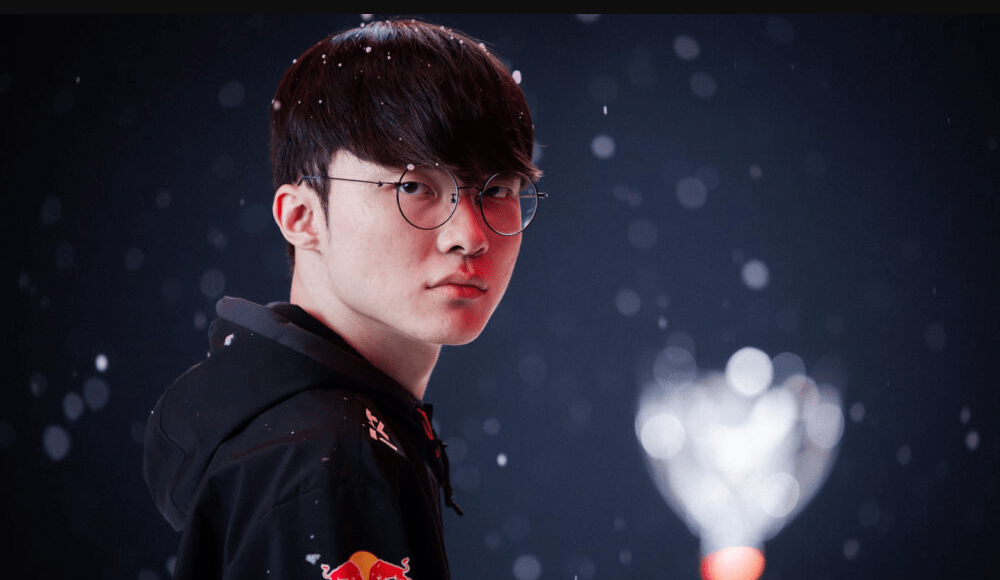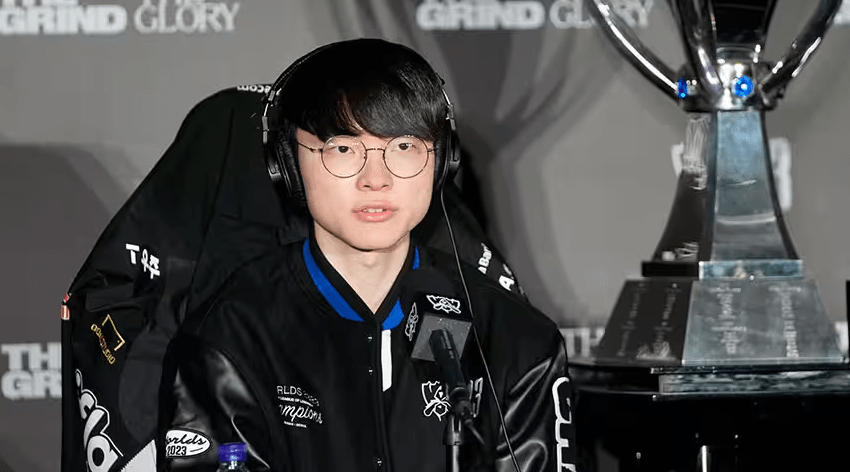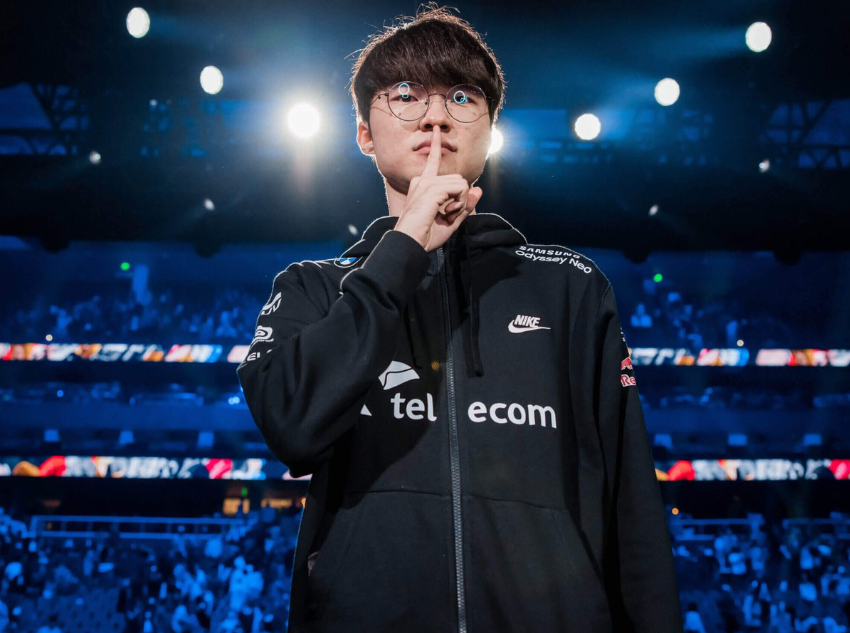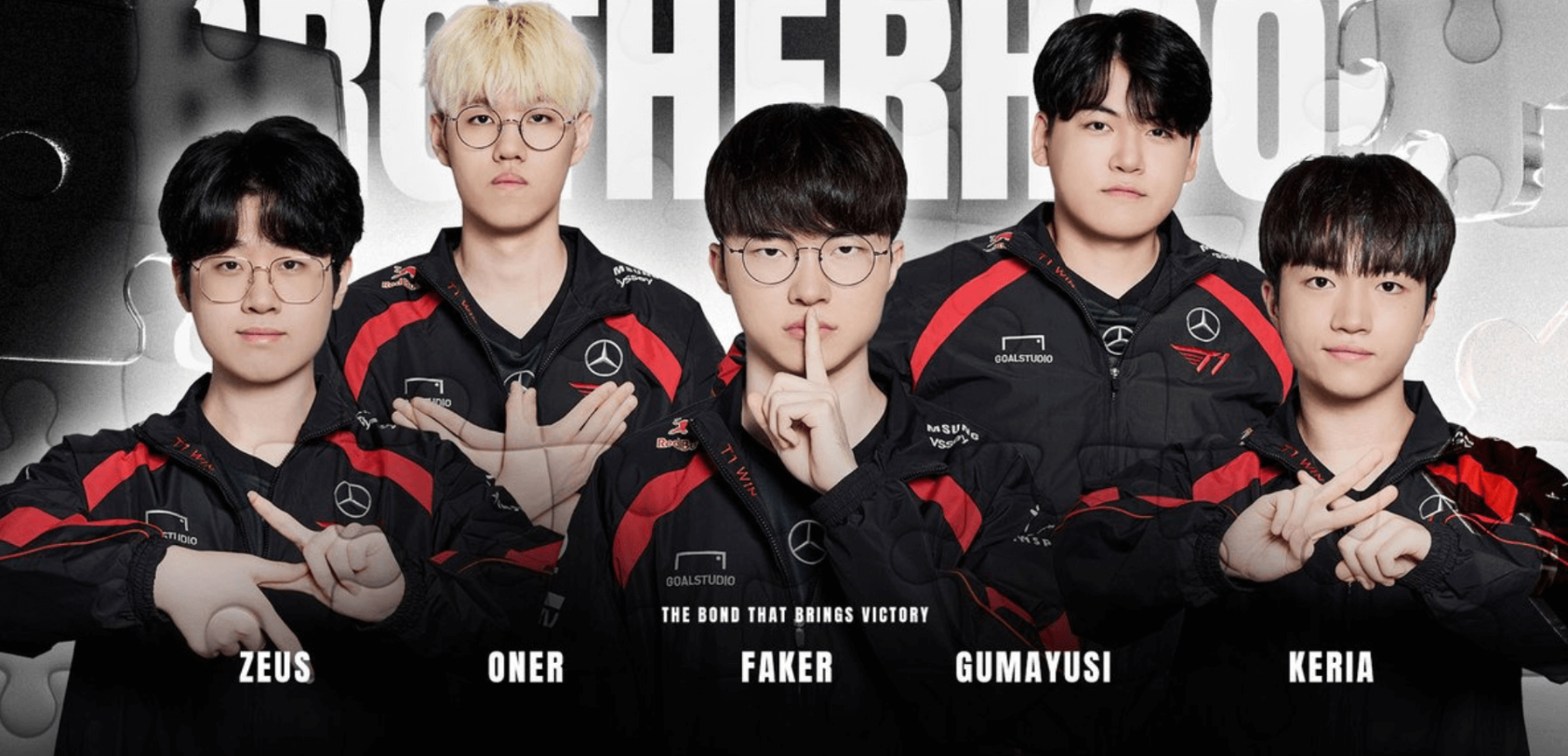T1 Faker’s Response Following Loss to HLE: ‘We Didn’t Have a Fair Chance to Practice’
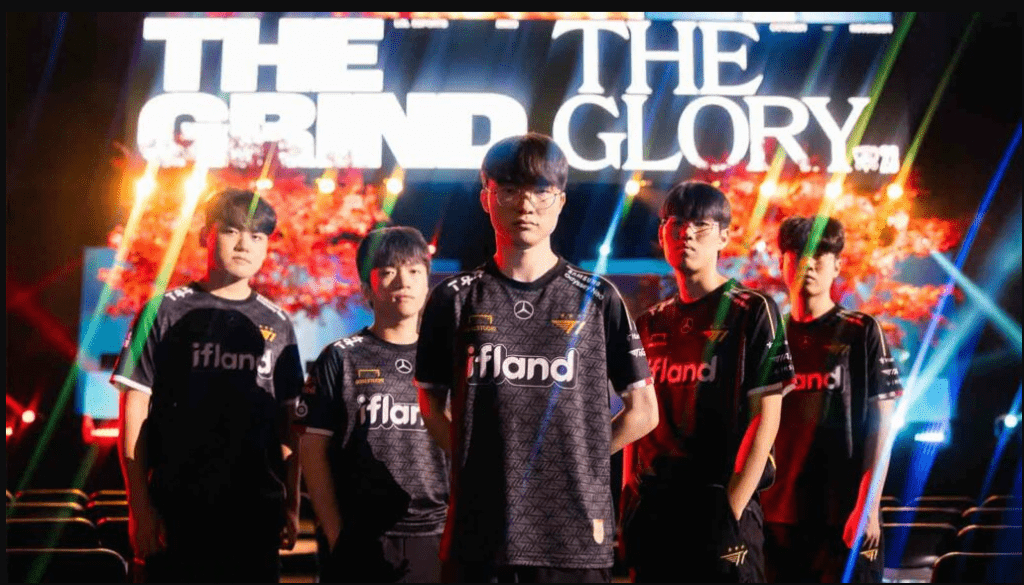
T1 Faker’s frustration was evident as he addressed the challenges faced by his team due to the relentless distributed denial-of-service (DDoS) attacks that continue to plague the League of Legends Champions Korea (LCK). Following their 0-3 loss to Hanwha Life Esports in the LCK Spring 2024 playoffs, Faker expressed how these attacks have significantly hindered T1’s ability to perform at their best. Unable to practice effectively in solo queue, Faker firmly stated that T1 was not afforded the same fair opportunity to prepare as other teams in the league. The impact of these attacks on T1’s performance has been undeniable, leaving them grappling with the consequences and seeking solutions to mitigate future disruptions.
Table of Contents
In light of DDoS attacks in the LCK, T1 Faker speaks up about his team’s situation
The T1 organization, one of the most renowned and successful teams in the competitive League of Legends scene, has recently been confronted with a significant setback in the form of widespread distributed denial-of-service (DDoS) attacks. These malicious attacks have had a severe impact on T1’s ability to prepare for the highly anticipated LCK Spring 2024 playoffs, causing frustration and concern within the team. The Korean solo queue, a crucial platform for professional players to practice and refine their skills, has become a battlefield for DDoS attacks targeting T1 members. Players such as jungler Mun “Oner” Hyeon-jun, bot laner Lee “Gumayusi” Min-hyeong, and support Ryu “Keria” Min-seok have all experienced the disruptive effects firsthand during their livestreams. These attacks have resulted in frequent disconnections and interrupted gameplay, making it impossible for the players to engage in effective practice sessions. The repercussions of these DDoS attacks have been significant and far-reaching. T1 Faker, the legendary mid laner and a pillar of the organization, voiced his frustration and concerns in a post-game press conference following T1’s 0-3 loss to Hanwha Life Esports in the second round of the LCK Spring 2024 playoffs. Faker candidly expressed how the team’s performance had been hampered by the ongoing attacks, emphasizing the detrimental effect on their ability to prepare adequately.
Faker’s sentiments were echoed by other members of the team, who shared their collective disappointment and frustration. The T1 organization, known for its dedication and commitment to excellence, has been faced with an unfair and unpredictable obstacle in their path to success. The players’ inability to engage in productive solo queue practice, a vital component of their preparation, has left them feeling disadvantaged compared to their opponents. The consequences of these attacks extend beyond the immediate impact on T1’s performance in the playoffs. The psychological toll on the players cannot be underestimated. The constant threat of disconnection and the inability to train effectively have undoubtedly affected their confidence and focus. It is a stark reminder of the vulnerability of professional players in the ever-evolving landscape of esports, where external factors can disrupt even the most well-established teams. Despite the challenges they have faced, the T1 organization remains resolute in their determination to overcome these obstacles. They are actively working with relevant authorities and service providers to address the issue and strengthen their defenses against future attacks. T1 recognizes the importance of fair competition and equal opportunities for all teams in the LCK, and they are committed to ensuring a level playing field for themselves and their rivals.
The resilience and professionalism demonstrated by T1 in the face of adversity are testaments to their status as a storied organization. While the impact of the DDoS attacks cannot be undone, T1’s ability to adapt and find solutions will be crucial in their pursuit of continued success. As the League of Legends community rallies behind them, T1’s journey serves as a reminder of the challenges that esports teams can face and the unwavering determination required to overcome them.
DDoS attacks in LCK: A brief timeline
The disruptive wave of distributed denial-of-service (DDoS) attacks struck the League of Legends Champions Korea (LCK) on February 25, 2024, during the matches between DRX versus Dplus KIA and OKSavingsBank BRION versus Kwangdong Freecs. These attacks caused a series of technical pauses and substantial delays, throwing the league into chaos. The matches involving OKSavingsBank BRION and Kwangdong Freecs had to be rescheduled and conducted online due to the persistent DDoS attacks. Despite the best efforts of LCK management to conduct network inspections and implement response measures, the attacks continued, resulting in further disruptions during broadcasts. In response to the ongoing attacks and the need for stability, LCK management made the difficult decision to switch to pre-recorded matches for the remainder of Week 6. This strategic move aimed to mitigate the impact of the attacks and ensure a smoother viewing experience for fans. Furthermore, ticket holders for the affected matches were assured full refunds, while ticket sales for future matches were temporarily halted until the situation could be resolved.
Aiden Lee, the Secretary General of LCK, took charge of the situation and announced a gradual plan to return to live broadcasts without an audience. This cautious approach prioritized the security and integrity of the matches, aiming to create a protected environment that could withstand potential future DDoS attacks. By implementing enhanced security protocols and closely monitoring the network infrastructure, LCK aimed to gradually restore the excitement of live broadcasts while minimizing the risk of disruptions. To fortify their defenses against future DDoS attacks, LCK made a significant move on March 13, 2024, by implementing an offline game server at LoL Park. This dedicated server was purpose-built to provide a secure and controlled environment for LCK matches, shielding them from the threat of DDoS attacks. The introduction of this offline server marked an important milestone in the league’s efforts to protect the integrity of their matches and ensure a stable and uninterrupted viewing experience for fans. The impact of these DDoS attacks on the LCK cannot be understated. They disrupted the league’s scheduling, caused technical difficulties during matches, and created frustration among players, teams, and fans alike. However, the swift response and proactive measures taken by LCK management demonstrate their commitment to tackling the issue head-on and safeguarding the competitive integrity of the league.
As the LCK moves forward, it is crucial for the league and its stakeholders to remain vigilant against potential threats and continuously adapt their security measures to stay one step ahead of malicious actors. By investing in robust infrastructure, collaborating with cybersecurity experts, and fostering an environment of transparency and communication, the LCK can aim to minimize the impact of future DDoS attacks and ensure a smooth and uninterrupted esports experience for all involved.
What are DDoS attacks in esports?
DDoS (Distributed Denial of Service) attacks are a malicious tactic used by perpetrators to disrupt the normal functioning of websites or online services. These attacks involve flooding the targeted system with an overwhelming amount of traffic from multiple sources, rendering it unable to handle legitimate requests effectively. As a result, the targeted website or service becomes sluggish, unresponsive, or completely inaccessible. In the context of online matches, DDoS attacks have become a significant concern, as they can severely impact the gameplay experience for both professional and casual gamers. These attacks typically target either the game server itself or the internet connections of individual players participating in the match. By overwhelming the server or flooding the players’ connections with fake traffic, the attackers aim to disrupt the gameplay and gain an unfair advantage. One of the primary consequences of a DDoS attack during an online match is increased latency or lag. The excessive traffic and strain on the server or players’ connections cause delays in the transmission of data, resulting in delayed responses to player actions. This lag can greatly affect the precision and timing required in competitive gaming, leading to frustration and an unfair gaming environment.
Furthermore, DDoS attacks can cause frequent disconnections for affected players. The attackers’ goal is often to force targeted players out of the game by overwhelming their internet connections, causing them to lose connectivity and ultimately drop out of the match. These sudden disruptions not only disrupt the flow of the game but also create an unfair advantage for the attacking party. To mitigate the impact of DDoS attacks, various measures can be implemented. Game developers and service providers invest in robust network infrastructure and employ traffic filtering techniques to detect and block malicious traffic. Additionally, players are encouraged to use virtual private networks (VPNs) or other security measures to safeguard their internet connections and minimize the risk of being targeted. However, despite preventive measures, DDoS attacks continue to evolve, becoming more sophisticated and harder to combat. Attackers adapt their strategies to bypass security measures, making it an ongoing challenge for the gaming industry to stay ahead of these threats.
In response to the rising prevalence of DDoS attacks in online gaming, industry stakeholders are working together to develop and implement better security protocols. This includes collaborating with cybersecurity experts to assess vulnerabilities, sharing best practices, and exploring innovative technologies that can detect and mitigate DDoS attacks in real-time. Ultimately, addressing the issue of DDoS attacks in online matches requires a multi-faceted approach involving technological advancements, user education, and collaborative efforts. By striving towards a more secure and resilient gaming environment, players can enjoy a fair and uninterrupted gaming experience, free from the disruptive effects of DDoS attacks.
